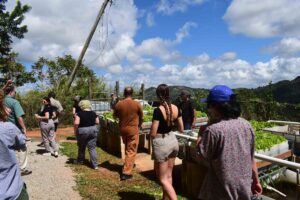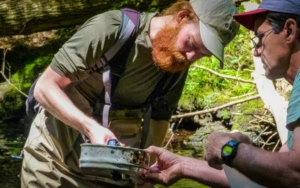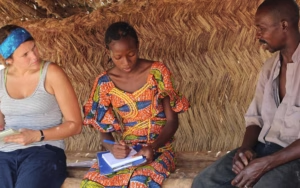When we think about health, we often imagine doctors, nurses, clinics, and medical interventions. But what actually makes a person, community, or society healthy? Who is healthy and who is not? Why? We know the conditions we need to flourish, but how do we create healthy communities—with safe housing, healthy and nutritious foods, and access to green spaces?

Request information
Sign up to receive information on academics, student life, and the undergraduate admissions process.
Loading…
Related programs
Be a force for change.
Come study at a small research university with a strong liberal arts core.




